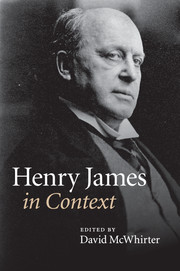Book contents
- Frontmatter
- Contents
- List of Illustrations
- Notes on Contributors
- Preface
- Abbreviations
- Chronology
- Part One Life and career, times and places
- Part Two Historical and cultural contexts
- Part Three Reception
- Chapter 37 Publishing history and contemporary reception
- Chapter 38 Critical response, 1916–1947
- Chapter 39 Critical response, 1947–1985
- Chapter 40 Recent criticism (since 1985)
- Chapter 41 Translation and international reception
- Further reading
- Index
- References
Chapter 37 - Publishing history and contemporary reception
Published online by Cambridge University Press: 05 August 2014
- Frontmatter
- Contents
- List of Illustrations
- Notes on Contributors
- Preface
- Abbreviations
- Chronology
- Part One Life and career, times and places
- Part Two Historical and cultural contexts
- Part Three Reception
- Chapter 37 Publishing history and contemporary reception
- Chapter 38 Critical response, 1916–1947
- Chapter 39 Critical response, 1947–1985
- Chapter 40 Recent criticism (since 1985)
- Chapter 41 Translation and international reception
- Further reading
- Index
- References
Summary
In a notebook entry for 26 January 1895, Henry James mused about a plot for a story: ‘The idea of the poor man, the artist, the man of letters, who all his life is trying – if only to get a living – to do something vulgar, to take the measure of the huge, flat foot of the public. . . It is suggested to me’, he confessed, ‘by all the little backward memories of one’s own frustrated ambition’. Twenty years before, he recalled, he had been contributing letters from Paris to the New York Tribune when the publisher, Whitelaw Reid, admonished him for his prose, urging James to make his letters ‘baser and paltrier, to make them as vulgar as he could, to make them, as he called it more “personal”’ (CN, 109). James tried, but failed, and lost his assignment. During those twenty years, he often felt frustrated that works he felt sure would have popular appeal – novels such as The American, The Bostonians and the melodramatic Princess Casamassima – failed to earn him a large readership and commensurate large sales.
As a young writer, James easily found venues for his work. By the time A Passionate Pilgrim and Other Tales appeared in book form in 1875, he already had published many stories and one serialized novel, Watch and Ward, in some of the most prestigious magazines of his time: Atlantic Monthly, The Century, The Galaxy and The Nation. In part, his early ease of publication came from his connections in the literary world: William Dean Howells, James Russell Lowell, Charles Eliot Norton and Edwin Lawrence Godkin were all family friends; and James’s father, Henry James Senior, was a writer of considerable reputation. The author of Roderick Hudson, a reviewer noted in the New York Times, was connected ‘with a father whose writings are well known for their rare union of subtlety of thought with vigor of style’. Certainly the younger James was taken seriously because of his own talent: ‘As he has thus far exhibited himself’, the reviewer wrote, ‘Mr James . . . is the result of culture, and the observation of cultivated society operating upon a mind naturally perceptive, receptive, and yet fastidious’.
- Type
- Chapter
- Information
- Henry James in Context , pp. 403 - 411Publisher: Cambridge University PressPrint publication year: 2010

